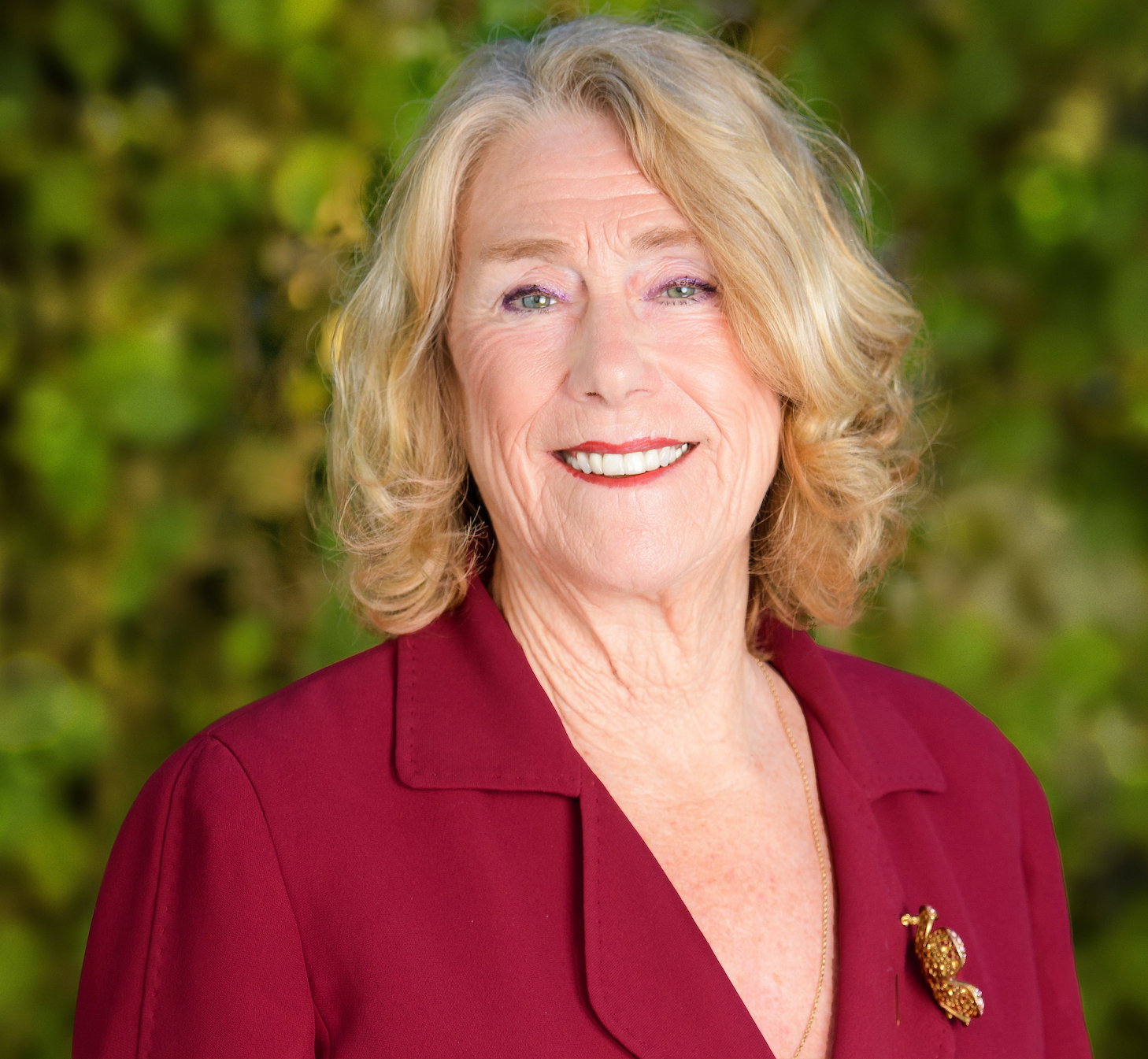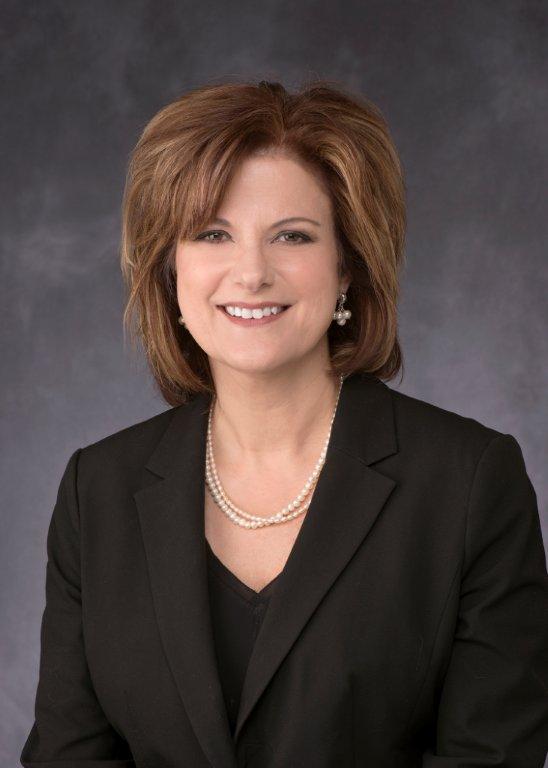ASU, Phoenix Children’s collaborate to launch pediatric-specific nursing programs

ASU nursing students Katie Huynh (left) and Jessica Wald (right) walk with Phoenix Children’s DEU nurse preceptor, Courtney Ellis. Photo courtesy of Phoenix Children's Hospital
Editor’s note: This Q&A is the first in a two-part series about how ASU's Edson College of Nursing and Health Innovation and Phoenix Children's Hospital are working together to prepare students for a career in pediatric nursing and to address a looming shortfall of nurses in Arizona and across the U.S.
An expansion of the partnership between Arizona State University’s Edson College of Nursing and Health Innovation and Phoenix Children’s is creating new opportunities for ASU students and filling the pipeline with workforce-ready nurses specializing in pediatric care.
So far, the two institutions have created a first-of-its-kind pediatric Dedicated Education Unit (DEU) for pre-licensure nursing students and collaborated on the development of the Acute Care Pediatric Nurse Practitioner Doctor of Nursing Practice (DNP) and Certificate Program curriculum for graduate-level nursing students.
The DNP program launched in fall 2018. The DEU began this spring with an inaugural cohort of 8 students. Jessica Wald was part of that group.
“For those of us in the DEU program, we felt a greater sense of accountability and responsibility for our patients. For example, we were all assigned our own computer logins, so we did patient charting under our own names,” Wald said.
Which is exactly the point. The DEU is a competitive program structured to give students additional pediatric-focused clinical hours at the patient bedside at Phoenix Children’s. Nursing students apply for the program — which is an elective course — their junior year. This specialized training helps develop nurses who are confident and comfortable in their ability to care for young patients.
We spoke with Wald, Edson College Dean Judy Karshmer and Phoenix Children’s Chief Nursing Officer Julie Bowman to learn more about how the unit works and the benefits for all involved.
Question: How is the DEU different from what other nursing colleges offer?
Karshmer: The pediatric DEU is the first and only program of its kind. Our team traveled to Oregon to see a DEU in action, and then we worked hand-in-hand with Phoenix Children’s to design it especially for pediatrics. In addition to their traditional nursing coursework, DEU students receive focused hours with pediatric patients. Another unique thing is that students are paired up with a nurse preceptor for six full nursing shifts, giving them valuable clinical experience earlier in their education. They’re also learning to collaborate with patients and physicians, communicate in an age-appropriate way with young patients and empathize with parents on their hardest days. These students are better prepared for the “Transition to Practice” program they must complete toward the end of their degree. They’re already in a clinical mindset and are learning to think like a nurse.
Dean Judy Karshmer
Q: How does this partnership help meet the needs of patients in Arizona?
Karshmer: We are bracing for a shortfall of nurses across the country, but the shortage is expected to hit Arizona the hardest. By 2025, Arizona’s nurse shortage will exceed 28,000, with the biggest gaps in highly specialized areas like neonatal intensive care.
ASU’s partnership with Phoenix Children’s is part of an ongoing effort to prepare well-trained, workforce-ready graduates. Programs like the DEU and Acute Care Pediatric Nurse Practitioner DNP provide our students with meaningful clinical experiences while also arming them with the skills they need to provide care in a highly specialized area of nursing. Students will be better prepared to meet patients’ needs, now and in the future. For organizations like Phoenix Children’s, nurses with this level of experience are invaluable.
Q: Why is there a need for this elective program?
Bowman: The DEU was designed to give nursing students an opportunity to work directly with Phoenix Children’s nurse preceptors and to be part of patients’ care teams. Unlike typical preceptorships, they’re not just shadowing — they’re taking an active role in patient care. They’re spending more time at the patient bedside, honing their skills and learning what it means to care for a child and his or her family.
We just finished the first semester of the DEU program. While we were confident in the program’s design, this first semester was more successful than we ever imagined. The experience of truly participating in patient care was incredibly meaningful for our student nurses as well as the care teams. Students gained confidence, expanded their clinical competence and learned how to work with care teams.
Chief Nursing Officer Julie Bowman
Q: Why is it important for nursing students to receive pediatric-specific training?
Bowman: In pediatric care, many of our patients may be fighting chronic or life-threatening conditions like childhood cancer or a congenital heart defect. These kids need highly specialized care from clinicians across numerous medical specialties. The typical new graduate is not as prepared to provide the high-tech — and often highly complex — care our patients and their families need. At Phoenix Children’s, our nursing staff must be adept in performing day-to-day nursing skills, but, more importantly, they have to know how to think critically, to problem-solve and to manage challenging situations.
In previous years, nurses spent hundreds of hours in orientation when hired at Phoenix Children’s. The required orientation time was reduced once nursing students began enrolling in our Transition to Practice (TTP) program, which gives more than 130 hours at the patient bedside in a student’s last semester of their degree. Now, ASU students who complete the DEU — 72 hours of focused clinical time — are afforded more than 200 hours of total clinical time between the two pediatric-specific nursing programs before graduation. Nurses with this level of specialized training won’t need as much time in orientation.
Q: How is the DEU different from your other clinical experiences?
Wald: In other clinical experiences, I felt more like an observer or assistant helping nurses care for “their” patients. As part of the DEU, we inserted PIVs [peripheral intravenous line], NG [nasogastric] tubes and Foley catheters, gave oral and IV medications and did blood draws off of peripheral and central lines, changed central line dressings and performed blood product/factor administration. These are skills that our classmates from ASU and students from other nursing colleges aren’t normally able to perform at Phoenix Children’s Hospital. For me, it speaks to Edson College and Phoenix Children’s belief in us as students, as well as the amazing training and mentorship we received from the nurses at the hospital.
Q: What was your most valuable experience during your DEU?
Wald: I can say with 100% confidence that for all eight of us in the DEU program, every part of the experience was incredibly valuable. If I have to choose one thing, it’s this: On our last day of the DEU, we were given the opportunity to take on two to three patients on our own. Our DEU nurses were there to answer questions, provide access to the medication room and review our action and charting, but all patient and family interaction, assessment, delegation, etc., was our responsibility. It was a chance to really dive into our strengths and weaknesses. I have not seen anything like this implemented in any program other than the DEU, and that made the experience priceless.
Q: What do you look forward to as you prepare to do the Transition to Practice part of your nursing degree?
Wald: I think all of us are most excited to fulfill our dream of working with children. The only reason we weren’t more saddened by leaving Phoenix Children’s on our last day of the DEU was the hope that we would get to come back very soon for our TTP experience. Each one of us has a story behind our drive and passion for pediatric nursing, and the chance to work with similarly minded professionals is something that is impossible to pass up.
More Health and medicine

From lab to startup: ASU researchers drive health innovation
By Emmanuelle ComptonThe future of engineering-driven health innovation is currently unfolding at Arizona State University.In the…

Creepy-crawly science that matters
Written by Douglas C. TowneWhen Karen Clark was a child traveling with her grandfather, the late ASU Professor Herbert L. Stahnke…

A new heart
Written by Daniel Oberhaus, ’15 BAEach year, around 1.3 million children are born with congenital heart disorders, malformations…

